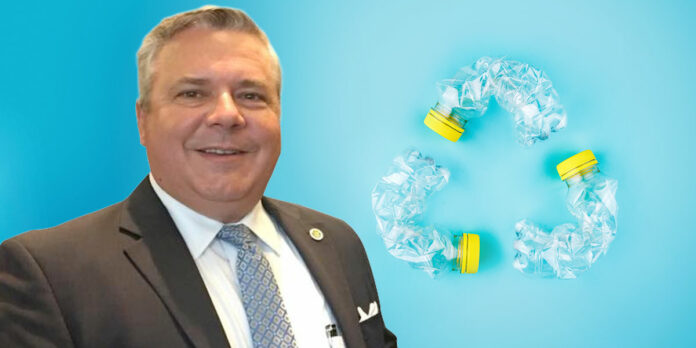Walter Brooke told Dustin Hoffman in the 1967 film “The Graduate” that “there’s a great future in plastics.” Well, he wasn’t wrong.
Plastics are in nearly everything we use today, from water-resistant clothes to electronics, medical devices, and packaging of all kinds.
Plastics are incredibly versatile, and their makeup allows for a wide variety of consumer benefits. Plastics in packaging provide efficient insulation and protection for food and allow for significantly lighter automobiles that are more fuel efficient and resilient to the elements.
Plastics are even a critical component used in the rockets and equipment we send to space as well as the gear first responders rely on when they’re saving lives. Plastics have become a crucial component used by virtually every industry for nearly every product we consume.
As our reliance on and consumption of plastics continue to grow, so too will the amount of waste we generate, which is expected to nearly triple by 2060. And, according to the World Economic Forum, in the U.S. alone, per capita plastic waste grew from 60 pounds per year in 1980 to 218 pounds in 2018 – a whopping 263% increase.
Unfortunately, given current policies (or lack thereof), the overwhelming majority of plastics we use ends up in either landfills, on our beaches, or in our streams – including right here in Alabama. As it stands, only 6% of the plastics we discard in the U.S. are recycled, according to recent findings by the EPA. But it doesn’t have to be this way – now or in the future.
We now have the technology and ability to capture 90% or more of the plastics that are not being recycled today, keep them out of our landfills and waterways and reuse them. This technology is known as advanced recycling.
Complemented with traditional recycling, this technology has the unique ability to modernize Alabama’s recovery and reuse capabilities and take hard-to-recycle plastic materials otherwise sent to landfills and convert them into new products and packaging.
Advanced recycling creates significantly fewer emissions than those produced by a typical trash-burning facility. In fact, the process can reduce CO2 equivalent emissions compared to landfill and waste-to-energy by more than 100%.
And, not only has this process been proven to be more environmentally friendly than typical waste disposal processes, but it also requires less water and energy in the recycling process and the technology allows for the greater capture of plastic materials.
Not only are the environmental benefits of advanced recycling truly significant, but so too are the potential economic benefits. With the private sector already contributing or pledging $7 billion, nationwide, to develop and implement advanced recycling, Alabama has the opportunity to join the 22 other states across the country that are taking advantage of this miraculous technology.
This would mean more jobs and greater revenue for our communities – not only directly in
recycling but also in the many industries that would benefit from being able to access recycled goods – industries ranging from transportation and technology to manufacturing and energy.
In short, advanced recycling would modernize our waste management systems, safeguard our environment and public health, attract new investments and jobs to our community, and make our state an even more desirable place to live and raise a family.
Rep. Chip Brown is chairman of the Alabama House Committee on Ports, Waterways & Intermodal Transit.
Don’t miss out! Subscribe today to have Alabama’s leading headlines delivered to your inbox.
